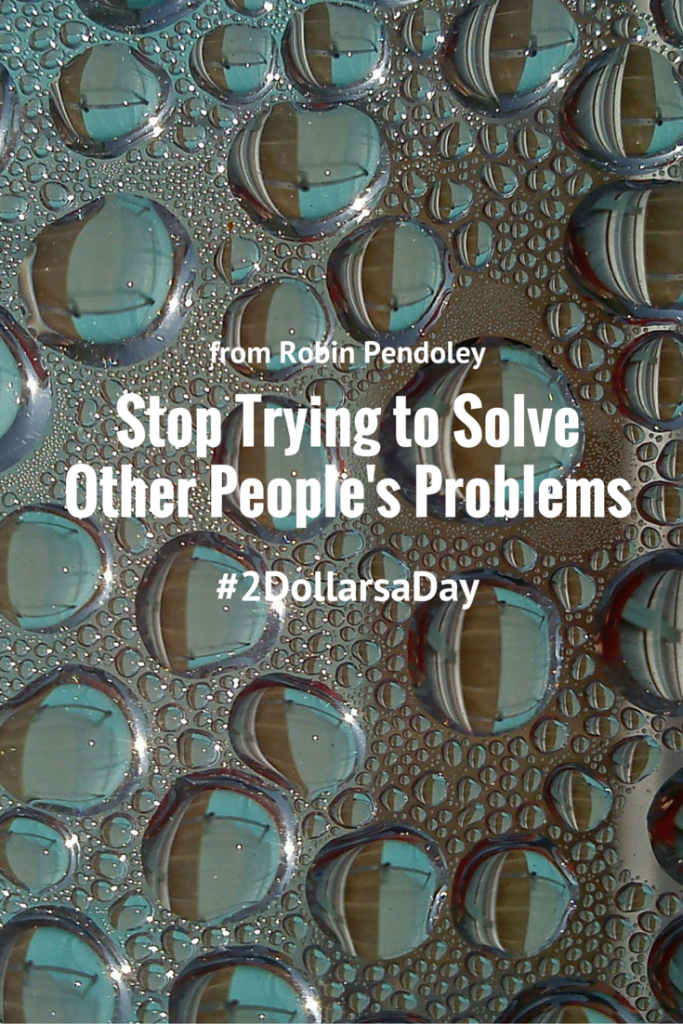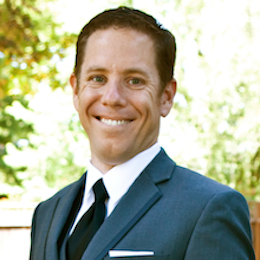Stop Trying to Solve Other People’s Problems
by Robin Pendoley
US culture highly values problem solvers, especially those who focus on the problems of others. We have many names for this problem solving: volunteering, service, social entrepreneurship, international development. We step into this work because it is offered as a path to a more socially just world. Unfortunately, it’s not. If you want to work for social justice, you must stop trying to solve other people’s problems.
This is not another blog post critiquing “voluntourism”. Nor is it another tirade against top down approaches to international development. Those are important arguments, but they have been made before. And, those arguments haven’t gone far enough to stop “do gooders” from causing harm with their good intentions.
Here’s the point: You can’t solve another person’s problems. You can’t. Period.
The problems other people face always look simpler from another person’s perspective. Take clean water in rural communities. It’s easy to see a group of people without water and think that the solution is to drill a well, divert a river, or create a business selling affordable water. These are technical solutions to what appears to be the technical problem of getting clean water into the hands of people that need it.
But, communities almost never lack clean water because of a failure to find a technical solution. None of that technology is new or difficult to implement. Communities lack access to clean water because of complex layers of economic, political, social, and cultural systems. These systems often happen at various scales simultaneously, from international to national to local. And, these factors affect each individual in the community, shaping their belief about their value and power as a human, and their ability to solve their own problems. Without a sense of agency, individuals and communities can’t solve the simplest of problems.

Amartya Sen, the great Indian economist, won the Nobel Prize for pointing out that humans are happiest when they have a sense of agency — when they believe that they can work with their community to improve their livelihood. This is the answer to the age-old conundrum of travelers from the “developed” world who visit rural villages to find that people are somehow both “poor” and happy at the same time. Happiness isn’t caused by having clean water. It’s caused by having the agency to attain clean water.
When we try to solve other people’s problems, we rob them of their agency. The act assumes that others either can’t or shouldn’t solve their own problems. It assumes that we, the “do gooders”, are somehow better at solving their problems than they are. There are those that argue that if we take the time to learn about the problems of others before we try to solve them, then we can overcome the risk of doing harm while trying to do good. That simply isn’t true. Others say that the solution is to listen to “locals” and follow their lead. But, who are the “locals” that we should listen to? What if there is disagreement among locals and power dynamics at play that suppress some voices in the community? These common suggestions do not prevent us from robbing others of their agency.
So, what’s a do gooder to do with their do gooding? Are we to accept that the world is unjust, inequitable, and unsustainable?
No. Here’s what you do:
Learn. Root your learning in a curiosity about other people, the challenges they face, and how theirs are similar to yours. In your learning, reflect upon your own life and share that reflection openly and honestly. Use this learning process as a way to build real relationships with people in your home community, in neighboring communities, or in communities in other countries. Throughout this process, push the ingrained tendency to try to solve other people’s problems out of your consciousness. Rather, let their lives, hope, vision, or despair help you understand your own challenges. As you gain new insight and perspective into the problems you face, you’ll find new solutions to your own problems. And, as you come to relate to the problems of others, you will find ways in which their problems are intertwined with yours. When this happens, you are in a position to work in solidarity with another person. In doing so, you’ll be working to solve your own problems, together.
+++++++++
 All roads in Robin’s life lead to co-founding Thinking Beyond Borders. Born and raised near San Francisco, he discovered at an early age that youth can affect the disparities and challenges of our world. Robin also learned the need to truly understand a problem and oneself before proactive changes can be made. He sees Thinking Beyond Borders as the actualization of those lessons.
All roads in Robin’s life lead to co-founding Thinking Beyond Borders. Born and raised near San Francisco, he discovered at an early age that youth can affect the disparities and challenges of our world. Robin also learned the need to truly understand a problem and oneself before proactive changes can be made. He sees Thinking Beyond Borders as the actualization of those lessons.
Robin equipped himself by earning a B.A. in International Development Studies from UCLA and a Masters in Education from the Harvard Graduate School of Education. He has lived and worked abroad extensively, both as a student and educator. Robin committed eight years to public schools in Los Angeles and Boston. He served as a teacher, administrator, coach, and college access program administrator.
Robin’s blog posts on education and social change have been featured on Forbes, Ashoka, and Innovation Excellence. He also served for three years as the Co-Director of the Colloquium for the Common Good at Opportunity Collaboration, a global poverty conference for sector leaders. Today, he helps shape the US gap year market as both the Co-Director of the USA Gap Year Fairs and as a Board Member for the American Gap Association.

 Previous Post
Previous Post Next Post
Next Post